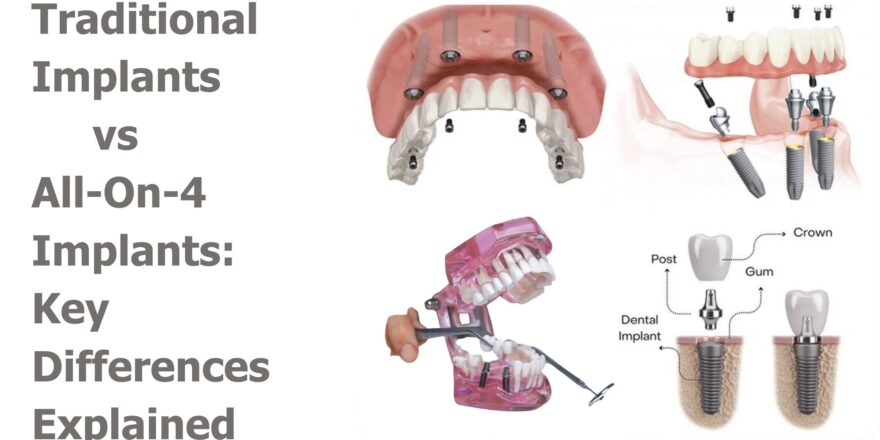Gum recession is a common dental disease that affects millions of people worldwide, often without them realizing it until the condition becomes more severe. It’s essential to understand the causes and prevention methods of receding gums to maintain optimal oral health. This blog will dive into what causes gums to recede, the potential consequences of untreated gum recession, and how you can prevent it with the right care.
If you’re experiencing gum recession or have concerns about your oral health, it’s crucial to consult with the best dentist in Dubai to ensure proper diagnosis and treatment.
What Are Receding Gums?
Gum recession happens when the tissue around the teeth retracts or erodes, revealing more of the tooth or its root. This process can lead to the formation of gaps or “pockets” between the gums and teeth, providing a space for bacteria to accumulate, which may result in infections or tooth decay. In advanced cases, receding gums can even lead to tooth loss if left untreated.
What Causes Receding Gums?
Poor Oral Hygiene
A leading cause of gum recession is inadequate oral hygiene. When plaque and bacteria are not properly eliminated by brushing and flossing, they can build up along the gumline. Over time, this buildup hardens into tartar, which can irritate the gums and lead to gum disease—a major factor in gum recession.
Aggressive Brushing
Although brushing your teeth is essential for good oral health, using excessive pressure or a toothbrush with hard bristles can lead to gum recession. Aggressive brushing can wear down the enamel of your teeth and traumatize the gum tissue, making it pull back from your teeth over time. To prevent this, it’s important to use a soft-bristled toothbrush and gentle strokes.
Gum Disease
Gum disease is a significant cause of receding gums. Gum disease is the result of bacterial infections that affect the gums, leading to inflammation, swelling, and tissue damage. As the disease progresses, the supporting bone structure around your teeth can weaken, causing the gums to recede.
Genetics
Sometimes, gum recession is out of your control and can be caused by your genetic makeup. If you have a family history of gum disease or receding gums, you may be more susceptible to the condition, even if you maintain good oral hygiene. If genetics are a factor, regular visits to the best dentist in Dubai can help monitor your gum health and prevent further damage.
Hormonal Changes
Hormonal changes, particularly in women, can impact gum health. Pregnancy, menopause, and even regular menstrual cycles can make the gums more sensitive and susceptible to recession. During these phases, gums may respond differently to bacteria and plaque, increasing the likelihood of gum disease and recession.
Tobacco Use
Smoking and tobacco use are significant factors in gum recession. These habits weaken the immune system and hinder the gums’ ability to heal. The harmful chemicals in tobacco irritate the gums, promote excessive plaque buildup, and eventually lead to gum recession.
Grinding and Clenching
Grinding your teeth (bruxism) or clenching your jaw exerts excessive pressure on the teeth and supporting tissues, which can cause the gums to recede. Over time, the constant force can cause wear and tear on the gum tissue, pushing it away from the tooth’s surface.
Misaligned Teeth
Improperly aligned teeth can place uneven pressure on the gums, potentially causing them to recede. Additionally, crooked teeth can make it harder to keep up with proper oral hygiene, which may lead to plaque buildup and gum disease—both of which are contributing factors to gum recession.
Piercings
Oral piercings, such as those on the lips or tongue, can irritate the gums. The constant contact of the jewelry with the gum tissue can result in damage over time, leading to gum recession.
How Can You Prevent Receding Gums?
Maintain Excellent Oral Hygiene
Preventing gum recession starts with good oral hygiene. Brush your teeth twice a day with a soft-bristled toothbrush, floss daily, and use an antimicrobial mouthwash to control bacteria. Pay special attention to your gumline when brushing to reduce plaque buildup and inflammation.
Use a Soft-Bristled Toothbrush with Proper Technique
Aggressive brushing can lead to gum recession, so opt for a soft-bristled toothbrush and apply gentle pressure. Hold the brush at a 45-degree angle to your gums, using small, circular motions instead of harsh, back-and-forth strokes.
Address Gum Disease Early
Gum disease is a major contributor to gum recession. If you notice red, swollen, or bleeding gums, contact a dentist promptly. Early treatment and regular professional cleanings can prevent gum disease from advancing and causing lasting damage to your gums.
Quit Smoking
Quitting smoking is one of the best steps for improving oral health. Smoking increases the risk of gum disease and gum recession while also causing other oral and general health problems. Once you stop smoking, your gums will heal more effectively and experience less irritation.
Use a Mouthguard
If you grind or clench your teeth, wearing a custom-fitted mouthguard at night can protect your gums and teeth from excessive pressure. This can help prevent gum recession caused by constant force on your teeth.
Correct Misaligned Teeth
Consider orthodontic solutions like braces or clear aligners if you have misaligned teeth. Straightening your teeth will help evenly distribute pressure on your gums, reducing the likelihood of further gum recession and enhancing overall oral health.
Regular Dental Visits
Routine dental checkups are crucial for keeping gums healthy and preventing recession. Your dentist can identify early signs of gum disease, plaque buildup, or other issues, and provide professional cleanings to remove tartar and bacteria, helping to avoid further gum damage.
Treatment Options for Receding Gums
If you’re already dealing with receding gums, don’t panic. Several treatment options are available to stop or even reverse the condition:
Scaling and Root Planing
This deep cleaning treatment involves removing plaque and tartar from below the gumline and smoothing the tooth’s root to help the gums reattach. This treatment is often the first step in managing gum disease and stopping recession.
Gum Grafting
In severe cases, gum grafting may be necessary. This procedure involves taking tissue from another part of your mouth and attaching it to the affected area to cover the exposed tooth root and restore the gumline.
Pinhole Surgical Technique
A less invasive treatment for treating receding gums is the pinhole surgical technique. This procedure involves making small holes in the gum tissue and gently repositioning it to cover the exposed roots.
Antibiotic Treatments
If gum disease is the cause of your receding gums, your dentist may prescribe antibiotic treatments to reduce infection and inflammation, preventing further recession.
Conclusion
Gum recession can be a serious issue if left untreated, but with proper care and attention, you can prevent it from happening or manage it effectively. Practicing good oral hygiene, using a soft-bristled toothbrush, quitting smoking, and seeking regular dental care are crucial steps in maintaining healthy gums.If you’re concerned about receding gums, schedule an appointment with the best dentist in Dubai like Gravity Dental PolyClinic to assess your condition and develop a treatment plan tailored to your needs. Taking action early will protect your oral health and keep your smile looking great for years to come.



